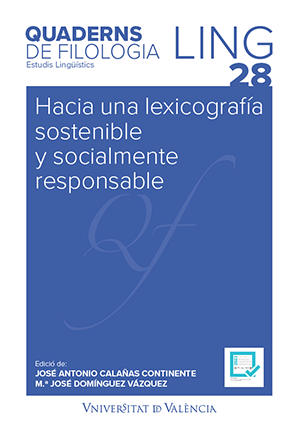A sustainable use of WordNet in artificial intelligence
DOI:
https://doi.org/10.7203/qf.0.26595Keywords:
sustainability, WordNet, artificial intelligence, natural language processing, knowledge engineering. Abstract
Abstract
The manual compilation of comprehensive language resources for artificial intelligence systems is a labour-intensive, time-consuming and economically costly task, which is why a sustainable use of existing resources is recommended. In this context, the research goal of this article is WordNet, a lexical database originally designed for the study of semantic networks. In particular, we analyse the sustainability of this lexicographical resource in the artificial intelligence fields of natural language processing and knowledge engineering from the perspective of three core attributes: extensibility, interoperability and reusability.
 Downloads
Downloads
Downloads
Published
How to Cite
-
Abstract1212
-
PDF (Español)507
Issue
Section
License
 Este obra está bajo una licencia de Creative Commons Reconocimiento-NoComercial-SinObraDerivada 4.0 Internacional.
Este obra está bajo una licencia de Creative Commons Reconocimiento-NoComercial-SinObraDerivada 4.0 Internacional.
Authors who publish with this journal agree to the following terms:
- Authors retain copyright and grant the journal right of first publication with the work simultaneously licensed under a Creative Commons Attribution License that allows others to share the work with an acknowledgement of the work's authorship and initial publication in this journal.
- Authors are able to enter into separate, additional contractual arrangements for the non-exclusive distribution of the journal's published version of the work (e.g., post it to an institutional repository or publish it in a book), with an acknowledgement of its initial publication in this journal.
- Authors are permitted and encouraged to post their work online (e.g., in institutional repositories or on their website) prior to and during the submission process, as it can lead to productive exchanges, as well as earlier and greater citation of published work (See The Effect of Open Access).




